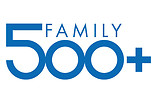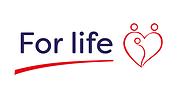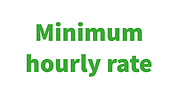Go to main menu | Go to submenu | Skip to content
“For Life” programme adopted by the Council of Ministers
20-12-2016The Council of Ministers adopted the resolution on the programme of comprehensive family support “For Life,”submitted by the Minister of Family, Labour and Social Policy.
The “For Life” (Za życiem) programme will support families with disabled people, especially those rising children with disabilities. It includes comprehensive support solutions for pregnant women and their families, early support for the baby and its family, support, rehabilitation and housing services. The programme provides for the coordination of support, guidance and information. Creation of the programme “For Life” was announced by Prime Minister Beata Szydło in early October 2016. The Inter-ministerial Group appointed by the Prime Minister was working on the programme.
In 2017, PLN 511 million is planned for the implementation of the programme. Between 2017 and 2021, a total of PLN 3.7 billion will be allocated for the programme.
The programme provides for diverse forms of support for people with disabilities and their families, including the provision of access to comprehensive care for women during pregnancy, including one with complications, childbirth and puerperium, and early child development support.
Existing homes for mothers with minor children and pregnant women will receive equipment – the assumed target is the functioning of about 40 facilities in the country.
The establishment of 380 coordination, rehabilitation and care centres, providing support for people with disabilities, with particular emphasis on children up to the age of 7, has also been planned.
Family members will be supported in care for the disabled person through the possibility of getting help in the form of the so-called respite care (help in dealing with day-to-day matters, replacement of a family member/carer when he or she is resting or working) up to 120 hours per year.
Care allowance (care for a sick child between the ages of 14 and 18) will be extended from 14 to 30 days in the case of care of a child with a severe degree of disability or a disability certificate together with specific indications.
The programme also assumes the creation of places in support centres which help disabled people (in particular with multiply disability and autism spectrum) to achieve autonomy and independence in social and professional life, and the creation and development of sheltered and assisted housing (providing twenty-four-hour support for adults with disabilities). Each year, 50 flats for nearly 500 people are to be created.
Labour offices will receive additional funds for activation of unemployed parents and carers of the disabled, necessary to take up employment or start economic activity.
The programme is to coordinate all activities for families with a disabled person, provide access to information and strengthen the function of around 5 thousand family assistants, as well as promote family values through local governments, the media and NGOs.





